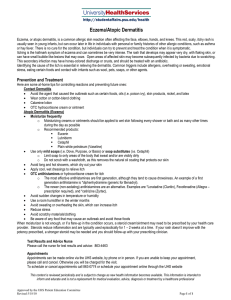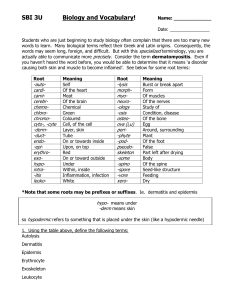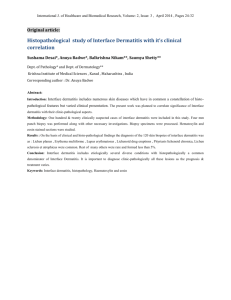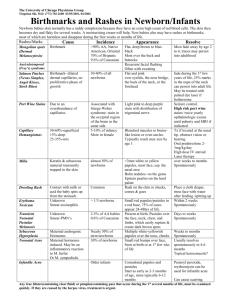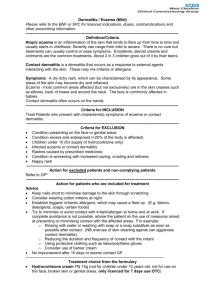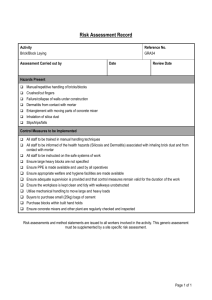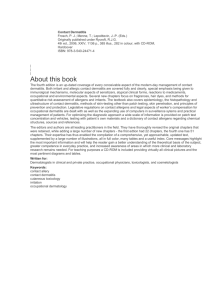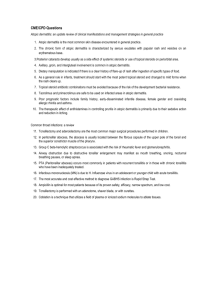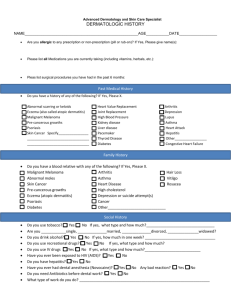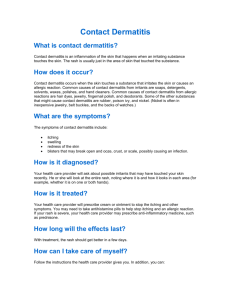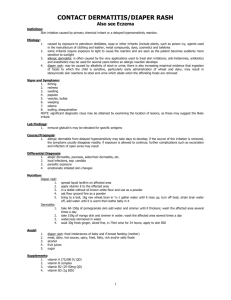Rash
advertisement
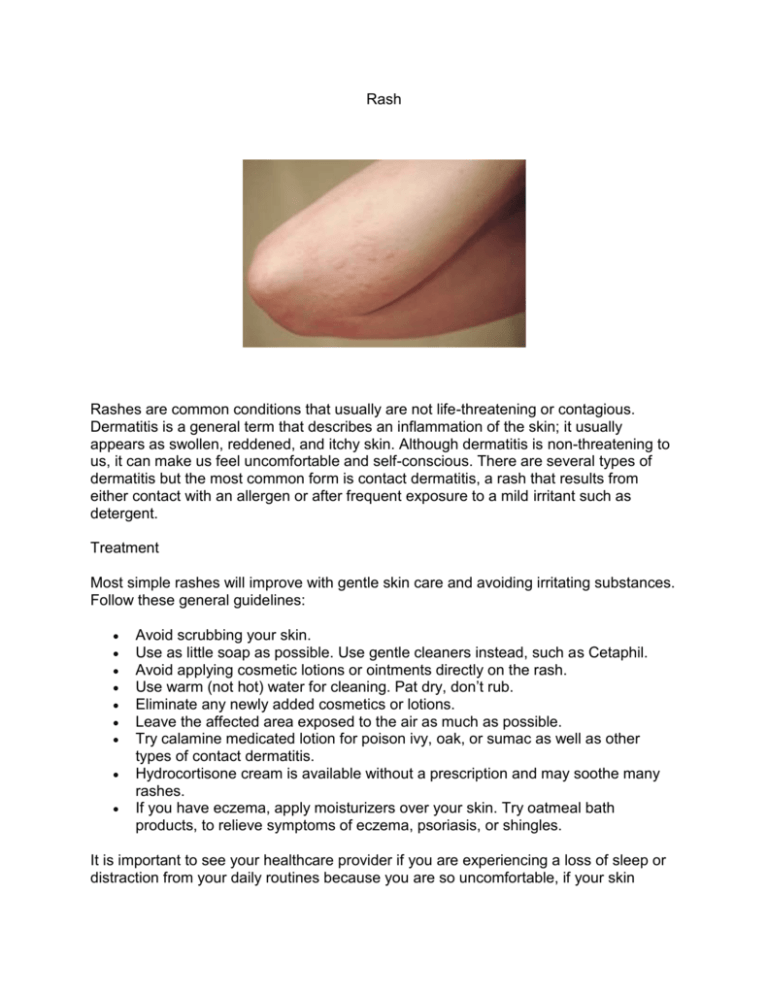
Rash Rashes are common conditions that usually are not life-threatening or contagious. Dermatitis is a general term that describes an inflammation of the skin; it usually appears as swollen, reddened, and itchy skin. Although dermatitis is non-threatening to us, it can make us feel uncomfortable and self-conscious. There are several types of dermatitis but the most common form is contact dermatitis, a rash that results from either contact with an allergen or after frequent exposure to a mild irritant such as detergent. Treatment Most simple rashes will improve with gentle skin care and avoiding irritating substances. Follow these general guidelines: Avoid scrubbing your skin. Use as little soap as possible. Use gentle cleaners instead, such as Cetaphil. Avoid applying cosmetic lotions or ointments directly on the rash. Use warm (not hot) water for cleaning. Pat dry, don’t rub. Eliminate any newly added cosmetics or lotions. Leave the affected area exposed to the air as much as possible. Try calamine medicated lotion for poison ivy, oak, or sumac as well as other types of contact dermatitis. Hydrocortisone cream is available without a prescription and may soothe many rashes. If you have eczema, apply moisturizers over your skin. Try oatmeal bath products, to relieve symptoms of eczema, psoriasis, or shingles. It is important to see your healthcare provider if you are experiencing a loss of sleep or distraction from your daily routines because you are so uncomfortable, if your skin becomes painful, if you suspect your skin is infected, and/or you have tried self-care steps without success. If you are a student, you may call 910.521.6219 to schedule an appointment to see a healthcare provider at Student Health Services. Prevention Identify and stay away from products that irritate your skin. Wash your hands frequently to prevent spreading viruses. Learn relaxation techniques. Stress aggravates many rashes; therefore it is important to identify stress coping mechanisms that work for you.
